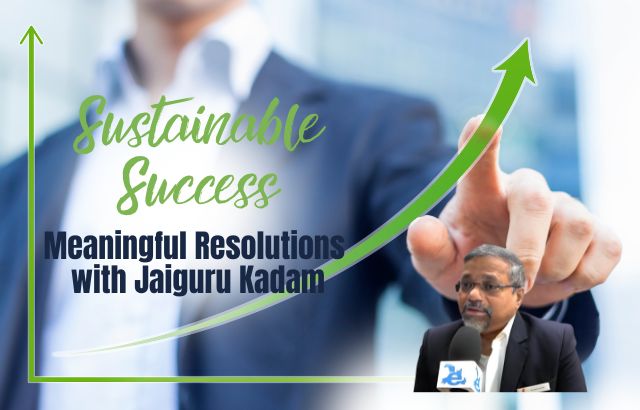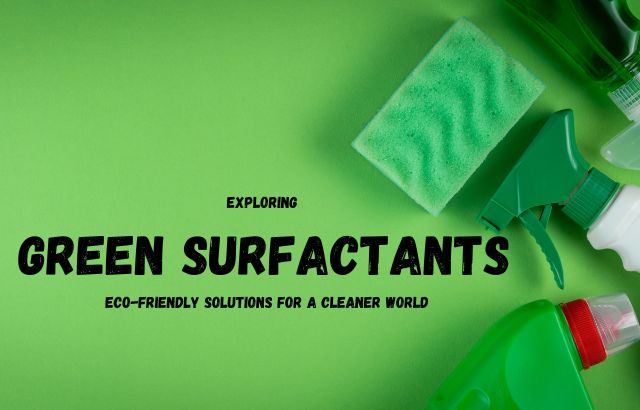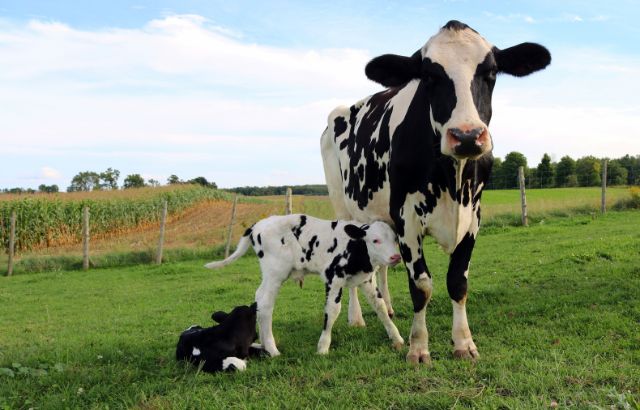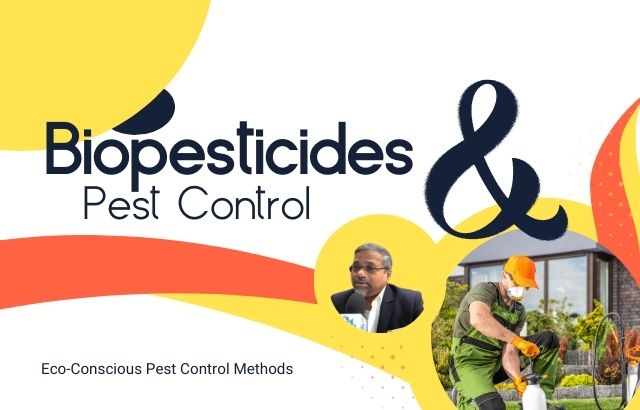Sustainable Success Resolutions – As the New Year approaches, many of us reflect on our goals and aspirations. However, crafting resolutions that stick can be challenging. In this blog, we’ll explore how to create workable resolutions, with an emphasis on sustainability. We’ll also look at the role of green innovators and provide practical tips and calculations to help you achieve your goals.
Welcome to “Sustainable Success: Meaningful Resolutions with Jaiguru Kadam,” where young green innovators can discover the power of setting impactful goals for a more sustainable future. As we navigate an era marked by environmental challenges, it’s crucial to establish resolutions that not only inspire personal growth but also contribute to the well-being of our planet. In this guide, we’ll explore how to craft resolutions that are specific, measurable, and achievable, while aligning with your values as a green innovator. Whether you’re aiming to reduce waste, embrace renewable energy, or promote sustainable practices in your community, the journey starts with meaningful intentions and actionable steps.
Steps to Create Workable Resolutions
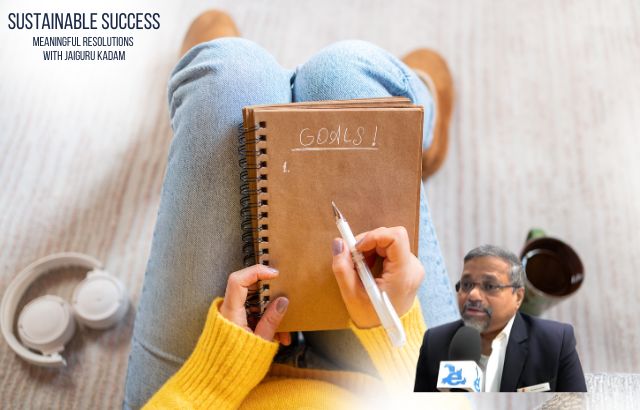
1. Be Specific
Instead of saying, “I want to be healthier,” specify your goal. For example, “I will exercise for 30 minutes three times a week.”
2. Set Measurable Goals
Make your resolutions quantifiable. If your goal is to reduce waste, aim to “cut down plastic use by 50% in six months.”
3. Make Them Achievable
Ensure your resolutions are realistic. If you’re new to exercise, committing to a marathon in a month may not be feasible. Start with manageable steps.
4. Relevant to Your Values
Align your resolutions with your values, especially if you’re passionate about sustainability. For instance, “I will use reusable bags and containers instead of single-use plastics.”
5. Time-Bound
Set a timeline for your resolutions. A goal like “I will compost my kitchen waste for three months” gives you a clear endpoint.
Sustainable Success Resolutions – Examples of Workable Resolutions
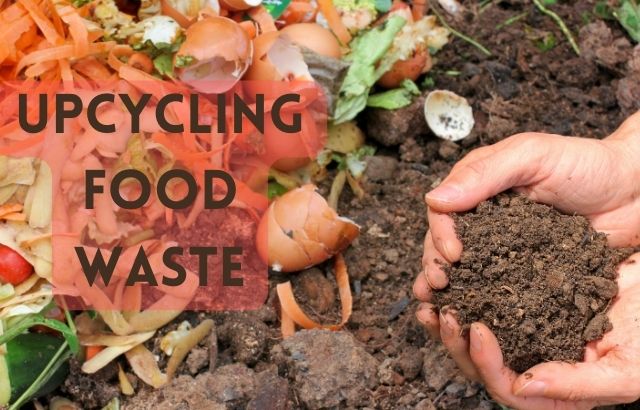
Sustainable Living Resolutions
- Reduce Food Waste: Aim to use leftovers creatively and shop with a list to avoid overbuying. Calculation: If you typically waste 30% of your groceries, reducing this by 50% can save you approximately $500 a year.
- Eco-Friendly Transportation: Commit to biking or walking for at least one trip per week instead of driving. Calculation: If your round-trip drive costs $5 in gas, you’ll save $260 annually by choosing alternative transportation just once a week.
- Plant-Based Diet: Transition to a plant-based meal once a week. Calculation: If a typical meal costs $10, switching one meal weekly could save you $520 a year while reducing your carbon footprint significantly.
Personal Development Resolutions
- Learn a New Skill: Set aside 30 minutes each week to learn about sustainable practices, like gardening or DIY repairs.
- Volunteer: Dedicate one day a month to volunteer with an environmental organization. This not only helps the planet but also enriches your community.
Role of a Green Innovator
Green innovators are crucial in transforming our resolutions into reality. They develop sustainable technologies, promote eco-friendly practices, and inspire communities to adopt greener habits. As individuals, we can channel the spirit of green innovation by:
- Researching: Stay informed about sustainable methods in your daily life.
- Networking: Connect with local green groups to share ideas and strategies.
- Leading by Example: Share your successes and challenges with others to encourage collective action.
Sustainable Success Resolutions – Ask Jaiguru: FAQs for Young Green Innovators

Q: How do I stay motivated to keep my resolutions?
A: Track your progress regularly. Use apps or journals to document your journey, and celebrate small victories along the way. Surround yourself with supportive people who share your goals, as this can help keep you accountable and inspired.
Q: What if I fail to keep my resolution?
A: Don’t be too hard on yourself. Reflect on what went wrong, adjust your approach, and try again. Flexibility is key to long-term success. Remember, every setback is an opportunity to learn and grow.
Q: How can I involve my family or friends in my sustainable resolutions?
A: Share your goals with them and encourage group activities, like meal planning or recycling challenges, to make it a fun and collective effort. Consider hosting workshops or movie nights focused on sustainability to spark interest and discussion.
Q: What are some easy sustainable habits I can start with?
A: Begin with simple changes like using reusable bags, reducing water usage, or switching to energy-efficient light bulbs. Every small step adds up and can inspire others to join you.
Q: How can I make a bigger impact in my community?
A: Organize community clean-up events or sustainability workshops. Collaborate with local organizations to amplify your efforts and engage more people in green initiatives.
Q: What resources can I use to learn more about sustainability?
A: Look for online courses, documentaries, and books focused on environmental issues. Websites like Coursera, Udemy, and local library resources can be great starting points.
Q: How do I convince others to adopt greener practices?
A: Share your experiences and the benefits you’ve noticed. Use positive language and focus on the advantages of sustainable living, such as health benefits and cost savings, to encourage others to make the switch.
Q: What are some innovative ideas for reducing waste?
A: Consider starting a community composting program, organizing clothing swaps, or creating DIY projects from upcycled materials. Encourage others to think creatively about reducing their waste.
Q: How can I make my school more sustainable?
A: Start a green club to raise awareness about sustainability initiatives. Propose recycling programs, energy audits, or even a school garden to engage your peers and faculty in eco-friendly practices.
Q: What should I do if I feel overwhelmed by environmental issues?
A: Focus on what you can control and take it one step at a time. Connect with like-minded individuals for support and remember that every small action contributes to a larger movement.
Q: How can I find mentorship in the field of sustainability?
A: Reach out to local environmental organizations, universities, or community groups to find mentors. Attend networking events and workshops to connect with professionals who share your passion for sustainability.
Q: What are some sustainable career paths I can explore?
A: Consider careers in renewable energy, environmental science, sustainable agriculture, or eco-friendly product design. Research various fields to find what resonates with your interests and values.
Q: How do I measure my progress in sustainability?
A: Set specific, measurable goals and track your achievements. Use tools like spreadsheets or apps to monitor your resource use, waste reduction, and energy consumption over time.
Q: What is the role of innovation in creating a greener future?
A: Innovation drives the development of new technologies and practices that improve efficiency, reduce waste, and promote sustainability. As a young green innovator, your creativity and ideas can lead to impactful solutions.
Q: How can I balance my personal life with my passion for sustainability?
A: Prioritize your goals and integrate sustainability into your daily routines without overwhelming yourself. Find joy in small changes and make sustainability a part of your lifestyle rather than a burden.
Feel free to use or adapt these FAQs to inspire young green innovators on their journey!
Sustainable Success Resolutions – Calculating Impact
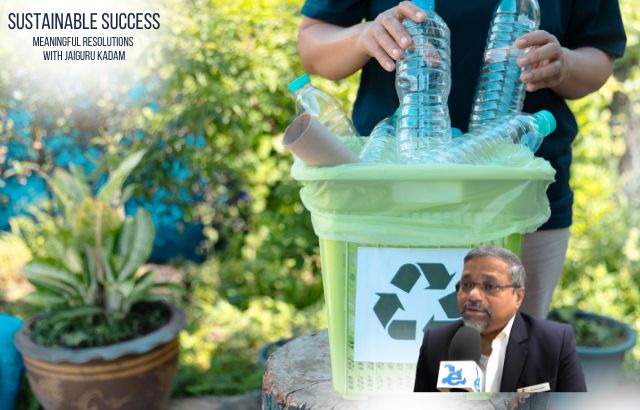
Example: Reducing Plastic Waste
If you currently use an average of 10 plastic bags per week:
- Annual Use: 10 bags x 52 weeks = 520 bags
- Resolution: Reduce by 50% → 260 bags saved
- Environmental Impact: Each plastic bag can take hundreds of years to decompose, so your resolution could help save 260 bags from landfills this year.
Example: Energy Consumption
If you resolve to reduce your electricity use by 15%:
- Current Usage: 800 kWh/month
- Reduction Goal: 800 kWh x 0.15 = 120 kWh saved/month
- Annual Savings: 120 kWh x 12 months = 1,440 kWh
- Cost Savings: If your electricity rate is $0.12/kWh, you’d save $172.80 a year.
Conclusion
As we wrap up “Sustainable Success: Meaningful Resolutions with Jaiguru Kadam,” remember that each resolution you make is a stepping stone toward a greener future. Embrace the challenges and celebrate your successes, no matter how small. By setting realistic and impactful goals, you not only enhance your own life but also inspire those around you to join the movement toward sustainability. Together, we can create lasting change and foster a culture of environmental responsibility. Let your passion for innovation lead the way as you make a difference in your community and beyond. Here’s to a year of purposeful actions and sustainable achievements!

